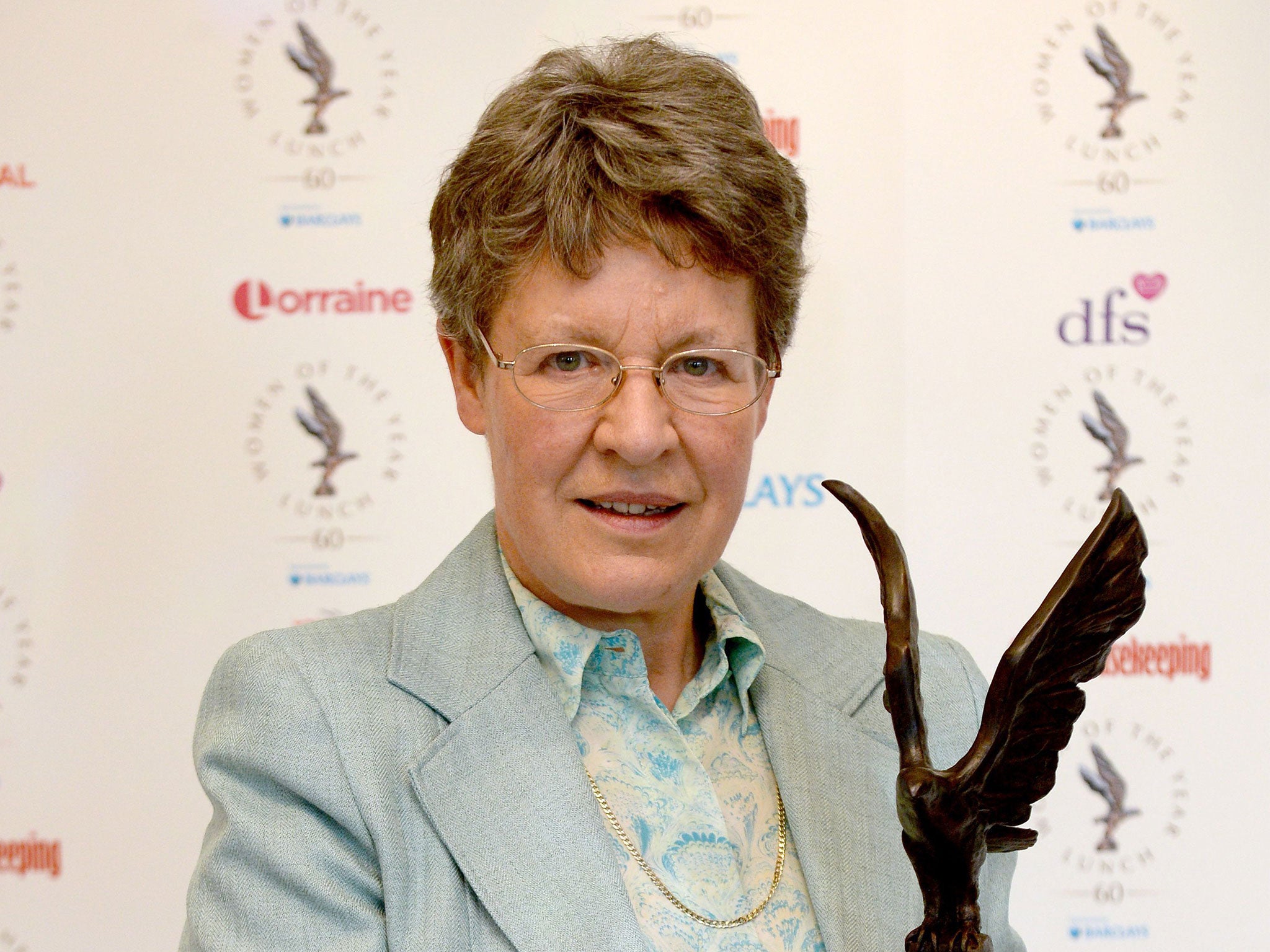Astrophysicist Dame Jocelyn Bell Burnell donates £2.3m prize to boost diversity in science
Female scientist was controversially omitted from Nobel Prize awarded to her male colleagues

Your support helps us to tell the story
From reproductive rights to climate change to Big Tech, The Independent is on the ground when the story is developing. Whether it's investigating the financials of Elon Musk's pro-Trump PAC or producing our latest documentary, 'The A Word', which shines a light on the American women fighting for reproductive rights, we know how important it is to parse out the facts from the messaging.
At such a critical moment in US history, we need reporters on the ground. Your donation allows us to keep sending journalists to speak to both sides of the story.
The Independent is trusted by Americans across the entire political spectrum. And unlike many other quality news outlets, we choose not to lock Americans out of our reporting and analysis with paywalls. We believe quality journalism should be available to everyone, paid for by those who can afford it.
Your support makes all the difference.A British astrophysicist has donated the entirety of her £2.3m prize from one of the world's most prestigious science awards to promote diversity among researchers.
Professor Dame Jocelyn Bell Burnell announced the money will be used to fund scholarships to help women, refugees and people from ethnic minority groups into the sciences.
The professor was awarded the Breakthrough Prize in Fundamental Physics on Thursday for the role she played in the discovery of pulsars during the mid-1960s.
Two of her male colleagues, Anthony Hewish and Sir Martin Ryle, were handed the 1974 Nobel Prize in Physics for the research, but Prof Bell Burnell was controversially overlooked as a co-recipient.
“I don't want or need the money myself and it seemed to me that this was perhaps the best use I could put to it,” she told BBC News.
Prof Bell Burnell was a young research student at Cambridge University when she became the first scientist to observe radiation omitted from pulsars, small stars with huge masses that rotate at tremendous speeds.
The precise and consistent timing at which pulsars spin makes them extremely reliable natural clocks for astrophysicists, who have since used them to help map the visible universe.
The Belfast-born, York-educated scientist has in the past been diplomatic about her omission from the 1974 Nobel Prize, conceding at the time it was seen as a prize awarded only to senior male scientists.
However, she hopes her donation will pave the way for more ground-breaking discoveries by scientists from diverse backgrounds in the future.
“I found pulsars because I was a minority person and feeling a bit overawed at Cambridge,” she added.
“I was both female but also from the northwest of the country and I think everybody else around me was southern English.
“So I have this hunch that minority folk bring a fresh angle on things and that is often a very productive thing. In general, a lot of breakthroughs come from left field.”
The Breakthough Prize is awarded each year to recognise scientists who have made “profound contributions to human knowledge”.
Sponsors of the prize include Facebook chief executive Mark Zuckerberg and Google co-founder Sergey Brin.
Professor Bell Burnell’s cash prize will be handed over to the Institute of Physics (IOP), which said the money would be used to “open the door” to the sciences for underrepresented groups.
“This prize is an excellent and hugely appropriate acknowledgement of Jocelyn’s work,” said IOP president Professor Dame Julia Higgins.
“Her discovery of pulsars still stands as one of the most significant discoveries in physics and inspires scientists the world over.
“Her example of using insight and tenacity to make a discovery that rings through the ages stands her alongside the greatest of scientists.
“Alongside her scientific achievement, Jocelyn has become a hugely respected leader in the scientific community.
“She has been instrumental in making sure the issue of access to science by people from under-represented groups is at the very top of the science community’s agenda.”
Join our commenting forum
Join thought-provoking conversations, follow other Independent readers and see their replies
Comments